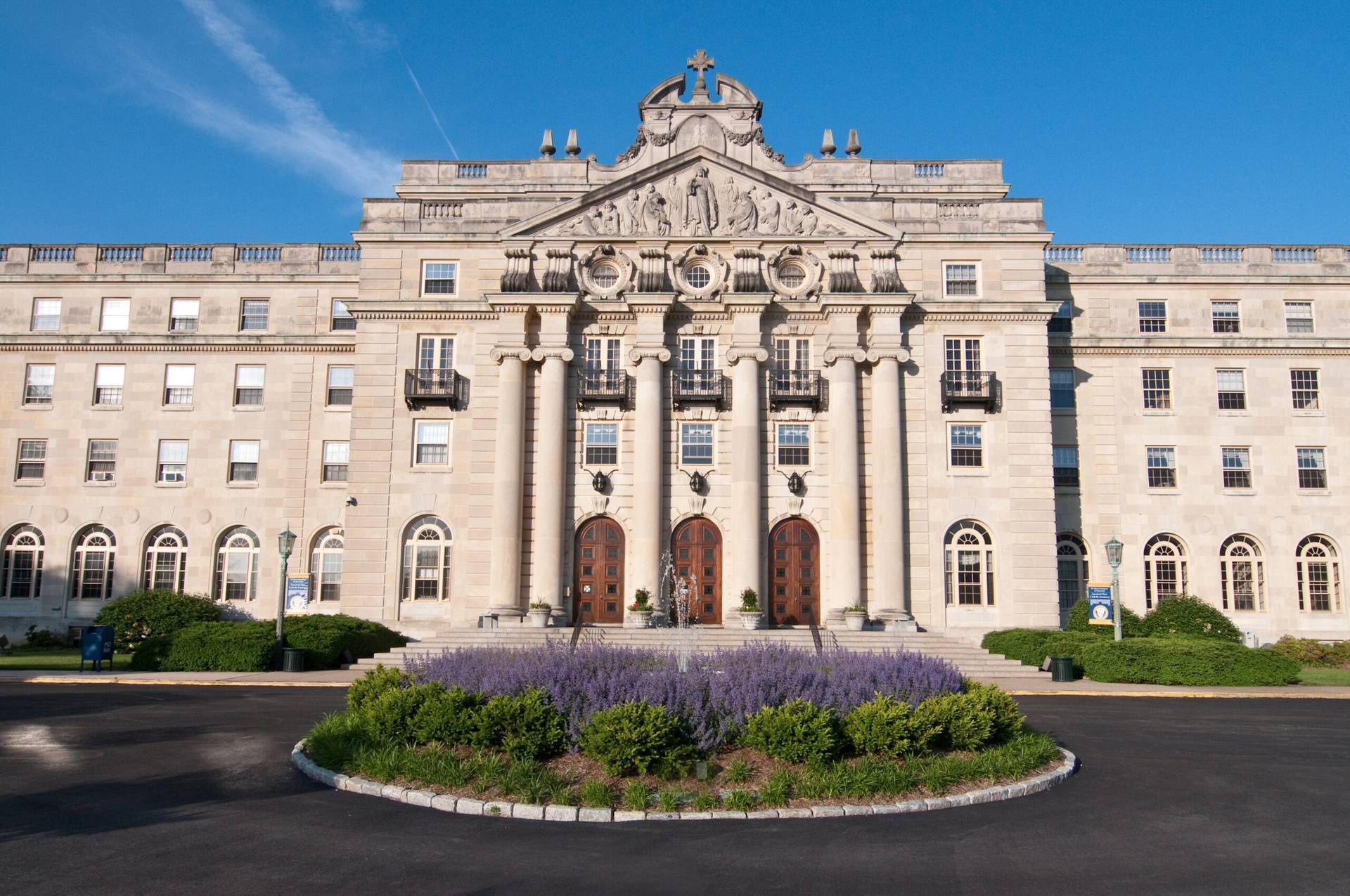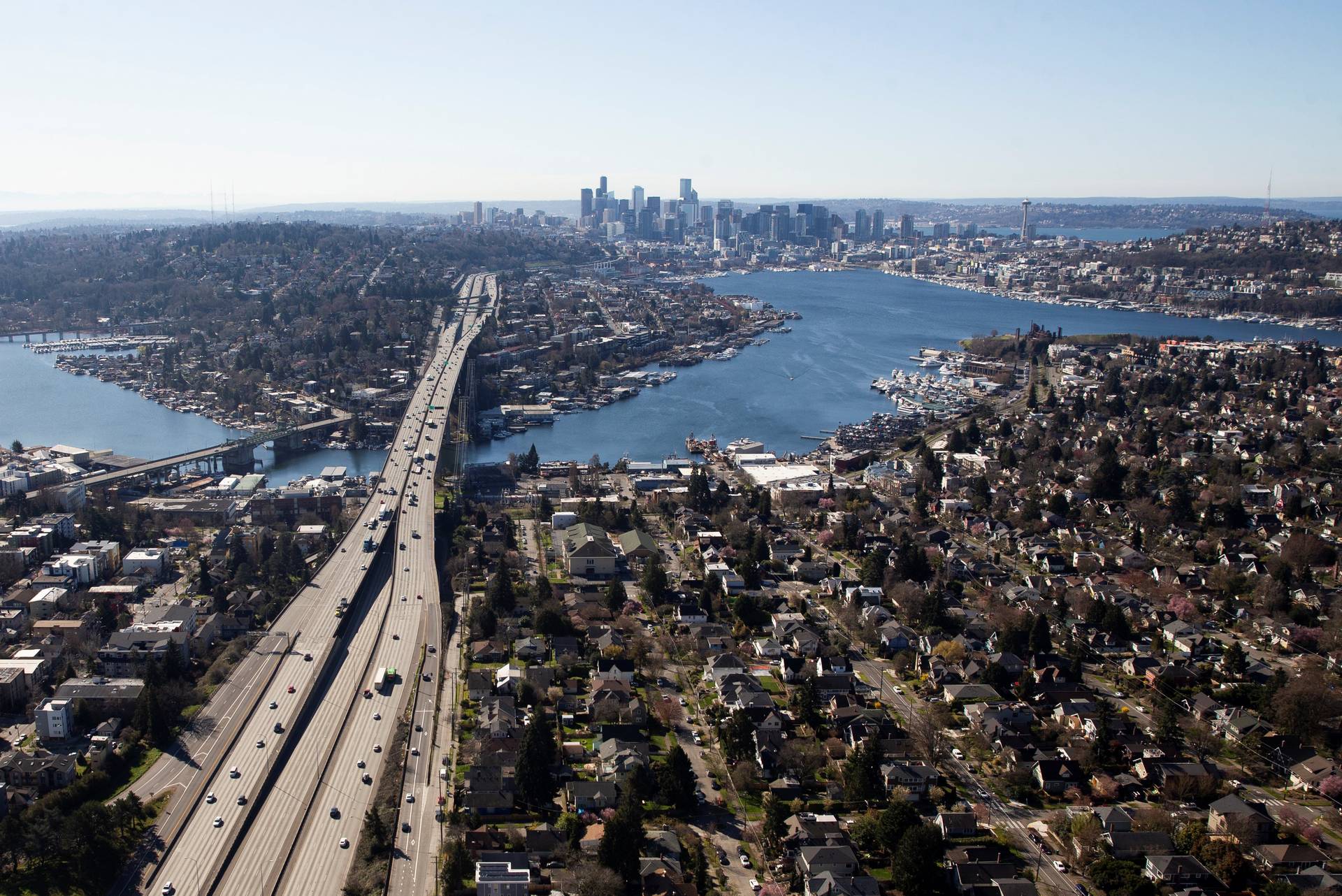LOS ANGELES — Catholics across Southern California offered prayers for peace to meet the might of an advancing Russian army in Ukraine.
Nowhere were the pleas more urgent than at a small Ukrainian Catholic church in East Hollywood, filled with parishioners Feb. 27 to share a message by Los Angeles Archbishop José H. Gomez.
The faithful, including many immigrants from Ukraine, came to Nativity of Blessed Virgin Mary Ukrainian Catholic Church for Mass to hear the archbishop’s letter of hope and his condemnation of the Russian invasion. He also offered prayers for the local Ukrainian community and to their families back home.
“My heart is with all of you in this time of sorrow and uncertainty,” wrote Gomez in a letter read during the liturgy by Cardinal Roger M. Mahony, retired archbishop of Los Angeles.
Gomez assured parishioners that “your Roman Catholic brothers and sisters in the Archdiocese of Los Angeles will always be near to you in solidarity and prayer. We are praying for a swift end to the evil of this war.”
He also called on those in authority to seek a just peace that recognizes the dignity and sovereignty of the Ukrainian people. He urged believers to call upon God through prayer to “banish this violence from our midst and wipe away all tears.”
“My prayers in this moment are especially for the innocent victims caught up in this violence, especially the many families who have lost their homes and livelihoods. May God strengthen them, especially the little children,” he said.
“And may God protect the many thousands who are now forced to seek refuge from this senseless bloodshed.”
The invasion by the world’s largest nation into its former Soviet satellite Feb. 24 sent shock waves through the Ukrainian American community.
“I still get goosebumps,” said Ukrainian-born Father Ihor Koshyk, pastor, before a Feb. 24 prayer vigil at the church hours after the incursion of Russian troops. “I can’t believe this is happening to my home country. My family, they’re scared. They don’t know what’s going to happen tomorrow.
“We’re here to ask God for help.”
By March 1, at least 200 Ukrainians had been killed and hundreds more were wounded, the Ukrainian government reported. In addition, more than 600,000 people have fled into neighboring European countries, the U.N. High Commissioner for Refugees said March 1.
Pope Francis made a heartfelt plea for peace, saying the threat of war caused “great pain in my heart.”
He appealed “to those with political responsibility to examine their consciences seriously before God, who is the God of peace and not of war,” and designated Ash Wednesday, March 2, as a day of fasting and peace.
In an unprecedented departure from diplomatic protocol, Pope Francis went to the Russian embassy to the Holy See Feb. 25 to relay his concern over the invasion. He also called the head of the Ukrainian Catholic Church, Archbishop Sviatoslav Shevchuk, saying “I will do everything I can” to help.
A day later, he called Ukraine President Volodymyr Zelenskyy to express his “sorrow” over the worsening war.
The attack brought condemnation from the Los Angeles’ Ukrainian American community.
More than 100 protesters gathered hours after the invasion began at a building housing federal offices in the Westwood section of Los Angeles to decry the invasion launched by Russian President Vladimir Putin.
“Putin go home!” they shouted. They waved Ukrainian flags and wielded signs saying, “Stop Putin” and “Ukrainians will resist.”
Hours later, about two dozen church members streamed into Nativity for a prayer vigil. Founded in 1947, the church has been a center of worship for generations of Ukrainian Angelenos.
They recalled centuries of Russian persecution in Ukraine, citing in particular the estimated 7 million people who died during a famine historians say was engineered by Soviet dictator Josef Stalin.
They also recalled the power of prayer during World War II, when German tanks rolled west across Ukraine toward Moscow.
Natallia Tsepenyuk, who immigrated a decade ago, recalled how her mother hid under a table with her nephew as German bombs fell near the city of Lviv in western Ukraine. Both prayed; the bombs sailed past the house.
“I came to pray, because I believe it is very good to pray,” Tsepenyuk told Angelus, the online news outlet of the Archdiocese of Los Angeles. “I’m pretty scared for my family. I’m wondering today about them leaving my country with the kids. There was actual bombing near my mom’s house.
“They sat in the basement. On mattresses. They don’t know what will happen next.”
The incense-filled vigil, led by Koshyk and an Orthodox priest, included sung prayer and hymns. The service ended with the church singing a Ukrainian anthem — about saving Ukraine.
“Desperate, paralyzed,” Nataliya Padilla, 52, a native of Kyiv, Ukraine, who now lives in greater Los Angeles, said before the service. “All my family are in bomb shelters right now.
“Putin only has one way. He can’t turn around. He must save face. Unfortunately, people are suffering.”
Koshyk, who has a wife and three American-born children, heard about the attack on his homeland on Facebook. (In Ukraine, men can get married before they are ordained the Ukrainian Catholic Church.)
The priest grew up in Lviv, Ukraine, which is near Poland.
“Can you imagine what I’m going through? I’m going to bed, and I don’t know whether they’re alive or not,” the priest said about relatives and friends in his homeland.
Bartholomew writes for Angelus, the online news outlet of the Archdiocese of Los Angeles.
















